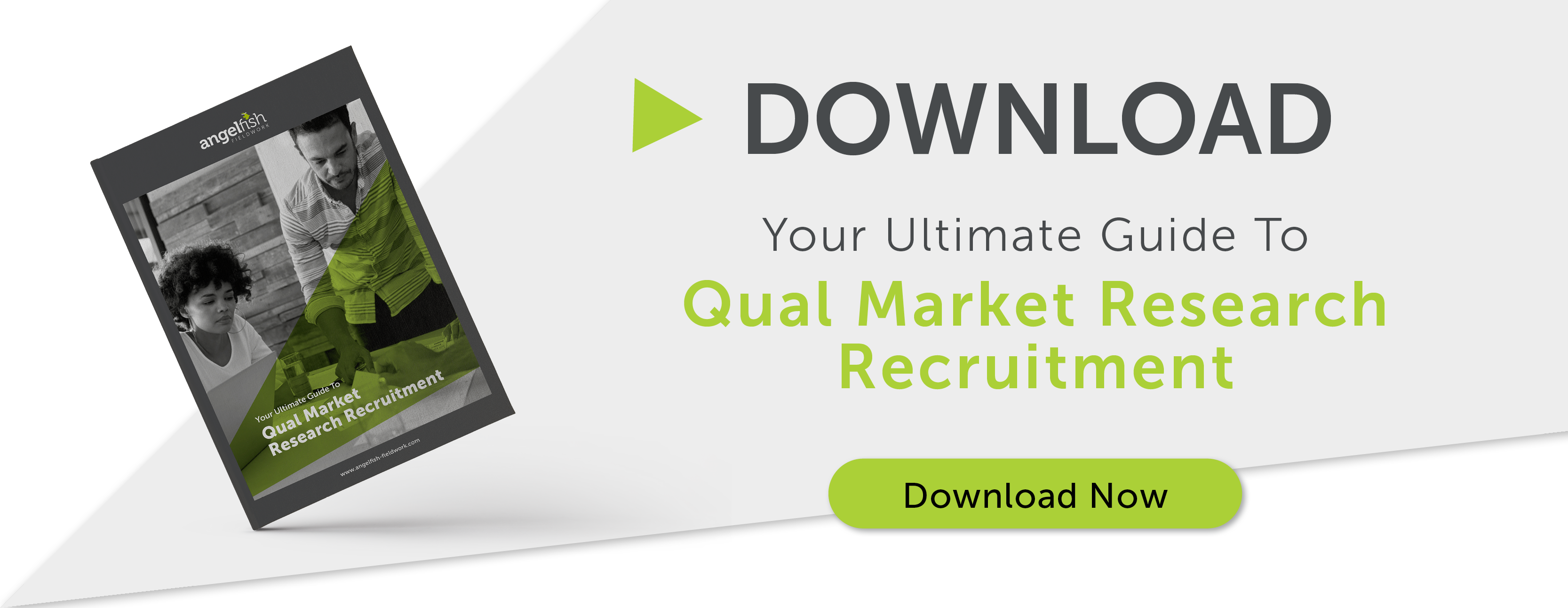
How to brief your qualitative fieldwork agency for better results
If you want to get the most out of your market research project, one of the most crucial steps is briefing your qualitative fieldwork agency.
Get this right and your agency will understand your client’s business, work to deliver you maximum results and avoid costly mistakes.
Getting the wrong people for your study quickly becomes problematic, so by speaking to the ones who are overseeing the fieldwork on a daily basis, you can be sure they fully understand the project and no details get missed along the way.
Here’s how you can ensure you brief your chosen agency as clearly as possible...
8 tips for effectively briefing your chosen qualitative fieldwork agency
1. Ensure you communicate what you or your commissioning client does
Since your qualitative fieldwork agency will be collating research on your behalf, they need to understand both the commissioning company and the aims of the project.
Giving some background company information will help your fieldwork agency put themselves in you or your client's shoes.
2. Clarify and communicate your goals and objectives for the research
By communicating clear, defined goals and research objectives to your recruitment agency, both they and (where appropriate) the participants will be able to understand what you are looking to achieve. This will then improve the likelihood of you receiving a better initial response rate and overall results!
If you get your agency’s project managers and fieldwork team on board with your objectives early on, they’ll be able to really get behind your study and give valuable advice on the way if they spot anything that isn’t working in line with your objectives.

3. Define dates and key project milestones
Set out the dates you will be working to for the project, and any key milestones along the way. Within this timescale, be sure to consider everything; from dates that pre-work is required or, if needed, dates for last minute dropouts to be replaced.
Working backwards from the date of presentation can help you give your agency the deadlines that they require for the recruitment and fieldwork process.
Also, be sure to decide how and when you want updates from your agency, and in what form. For instance, email updates may be enough to begin with, but as the project approaches, you may need weekly or even daily catch up calls.
4. Outline clear screening criteria to get the best respondents
A vital part of the briefing process is explaining your screening questionnaire to help your qualitative fieldwork agency find the most relevant candidates for your project.
Be clear about any flexibility around these criteria so that your agency knows exactly which are nice-to haves and which are essentials. This will not only help them get the most relevant fit, but also gives them the ability to go back to respondents that were initially not chosen if recruitment proves tougher than expected.
Good agencies will give you lots of information about feasibility of your study, but it’s always wise to have a backup plan especially for target groups that are not regularly researched.
Most importantly, clear screening ensures that there are no hidden surprises that could negatively impact the recruitment process and ruin your research before it’s even begun.
5. Confirm recruitment feasibility
Although the sample size will already have been decided at the quote stage, it’s now time to get down to the nitty gritty.
This will be determined in part by the methodology you have chosen and the demographics you are looking for. However, it's important to be realistic in your expectations and discuss any potential flexibility in criteria with your agency, should the initial criteria not be feasible.
For example, are there any quotas that are less important than others? Make sure you identify these early on and make your chosen recruitment agency aware of them via phone call.
This will enable you to fully explain all elements of the screener, as well as ensure there are no technical misinterpretations or misunderstanding of your requirements. Your recruitment agency be able to advise you on anything that is unclear at this point so these can be revised pre-fieldwork.
Also make sure that you discuss what to do with regards to over-recruits in case of candidates dropping out or if quotas aren’t achievable.

6. Explain the specifics of the research
You will have already decided on whether your research is to be qualitative, quantitative or a mixture of both, so the next step is to be more specific about what is required:
- Are there any specific moderation techniques to incorporate?
- If so, does the moderator require any training?
- How about additional requirements, for example at the venue?
- Will you be using specific software?
- If so, who is responsible for on-boarding participants?
- Do you require training?
7. Define who’s who in the team
By defining the roles of the team on an introductory call, your fieldwork agency will know exactly who should be included in the communications.
You’ll also be able to establish who the main contact is for the study throughout the project at this point and make arrangements around any holidays or other factors that may influence the project.
Ultimately, this will help provide ownership and a clear understanding of responsibilities.
Also, be sure to provide contact details of who will be in attendance on the day so that both your recruitment agency and the participants know who to contact if there are any issues.
8. Be clear on consent
Make sure your agency knows what is and isn’t sharable with candidates, that they also organise the appropriate consent forms or NDAs, and are clear on any potential data and security considerations.
A good guide of reference for the minimum you should expect from your agency is available from the MRS website.
Ready to get started?
Knowing how to brief your chosen qualitative fieldwork agency is a huge step in the right direction towards a winning market research project. But there’s still plenty you can do to prepare and make your chances for success even greater!
For our most detailed and comprehensive advice, you can download Your Ultimate Guide to Recruitment in Qualitative Market Research below or get in touch with our team today for a chat about your upcoming projects!
Enjoyed this article? Here are some other resources you might like:
Recruitment- Angelfish Marketing
What exactly should I expect from my market research recruitment updates?
How to deliver expert moderation in Qualitative Market Research...
Understanding consent in market research: why this shouldn't hold you back



-Feb-19-2026-09-59-49-0345-AM.png)










